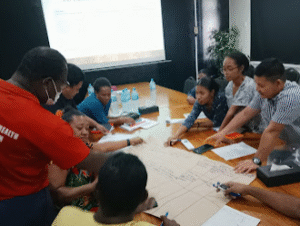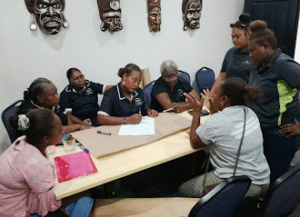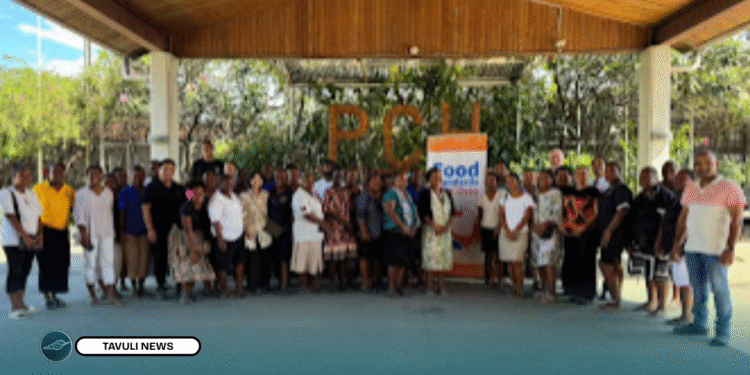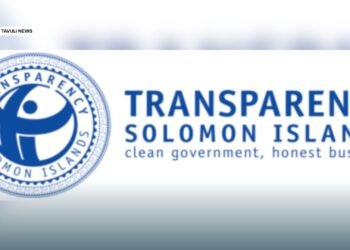Over 60 hospitality staff in Honiara trained in HACCP to boost food safety, protect health, and support tourism growth



HONIARA, 25 September 2025 – The Ministry of Health and Medical Services (MHMS), through its Food Safety Unit, in partnership with Honiara City Council and Guadalcanal Province, has successfully conducted a two-day Hazard Analysis and Critical Control Points (HACCP) training program for hotel and restaurant personnel in Honiara.
Held from 23–24 September and attended by over 60 individuals, the training aimed to build the capacity of hotel and restaurant managers, chefs, supervisors, food handlers, environmental health officers, and food inspection officers to implement HACCP — an internationally recognized food safety system that prevents foodborne illnesses and strengthens preparedness for major events and public health emergencies.
“This training is not just about compliance; it’s about protecting lives, supporting tourism, and preparing for any situation where food safety is critical,” said Mrs Patricia Soqoilo, National Chief Health Inspector, Food Safety Unit, MHMS. “Food safety is everyone’s responsibility. By embracing HACCP, we are protecting our people, strengthening our tourism, and showing the world that Solomon Islands practices great care in serving safe, great food.”
“This training strengthens the bridge between regulators and operators in their shared commitment to protect the welfare of the public,” said Georgios Theocharopoulos, WHO Solomon Islands Team Leader for Health Emergencies. “The HACCP approach ensures that when demand spikes or emergencies arise, Honiara’s hospitality and food supply industry is prepared and able to keep the public safe.”
Supports JEE Recommendations
The training reflects the Government’s commitment to safeguarding public health and promoting tourism through improved food safety standards. It also supports recommendations from the recent Joint External Evaluation (JEE), which highlighted the need to improve collaboration, outbreak response, and hazard control in food supply chains. By enhancing skills and compliance with national standards, the training will help protect public health, boost tourism confidence, and ensure readiness for high-profile events such as the recently concluded Pacific Islands Forum.
HACCP as a Key Tool
Foodborne illnesses remain a significant public health concern in Honiara, particularly with the growth of the hospitality industry and frequent large-scale gatherings. Despite existing food safety laws, trained inspectors, and laboratory support, gaps remain in the implementation of standardized food safety protocols such as HACCP.
Strengthening HACCP knowledge and application in hotels and restaurants will improve compliance with national frameworks, reduce risks during high-demand events, and enhance readiness to respond to emergencies involving foodborne hazards.
Building Safer Food Systems
During the training, participants gained insights on:
- improved HACCP implementation in hotels and restaurants,
- reduced risks of foodborne illness outbreaks,
- stronger collaboration between health authorities and the hospitality sector, and
- enhanced readiness to safely supply food during emergencies.
Ms Katie Pikacha, Manager at Ormis Kitchen, said the training helps ensure food safety by identifying risks, setting up control measures, and training staff to follow best practices. She added that it supports compliance, protects guests, and helps maintain a positive reputation.
Ms Pikacha also noted that WHO support is important because it ensures the training follows global standards and provides reliable resources. “I suggest working with local health authorities to make the training more relevant and effective,” said Ms Pikacha.
Mr Joy Bhattacharya, Manager for Training and Development at Heritage Park Hotel, said ensuring the health and safety of guests is a priority. “This training helps reinforce HACCP Principles in our day-to-day operations, which is key to maintaining our reputation for quality and safety,” said Mr Bhattacharya.
He added: “The training has equipped me with practical tools to identify potential hazards and apply preventative measures more effectively. It also provides insight on how to implement and monitor critical control points within our kitchen operations. This means we can further strengthen our internal food safety systems, train our staff more effectively, and ensure consistent compliance with international standards.”
“WHO’s involvement ensures the training is aligned with global health and safety guidelines, lending it credibility and relevance. It also encourages broader participation across sectors,” said Mr Bhattacharya.
WHO works globally to ensure food is safe, nutritious, and accessible for all. Through its food safety programme, WHO supports countries in strengthening regulatory frameworks, building the capacity of food handlers and inspectors, and improving surveillance and response to foodborne illnesses.
SOURCE : WHO Media Release
















































































